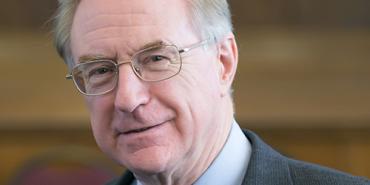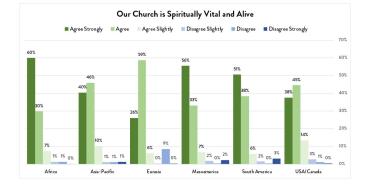Missions and Dispositions

Recently, representatives of various Nazarene constituencies joined their global leaders in a move to reframe the language of Nazarene Missions. By verifying what is and what is not changing in our global missionary enterprise, the outcome affirms the resilient nature of the movement.
Without contradiction, the changes are clearly rooted in what is not changing. The Church’s more than century long commitment to remain relevant requires a reevaluation of the way we accomplish the few things that are critical to our existence: hence the changes. Together the changed and the unchanged sustain the significance of that commitment.
I am grateful for the passionate men and women who, from their pioneering positions of faith and conviction, have led us all the way into modern missions. The Church I continue to grow in has given me an appreciation of missions through the acquaintances of many faithful leaders.
The Advocate
The acquaintance that first connected me with missions was my pastor, a leader with great passion. One of the indelible marks he left upon me happened on Christmas Day. The church’s December calendar was so full that there was no room for the monthly NMI meeting. The only opening the pastor could find was the afternoon of Christmas Day. He led the meeting himself.
At the time, he was writing a book that would be published under the title Primordios do Evangelho em Cabo Verde (The Early Days of the Gospel in Cabo Verde). The book is about the first days of the missional effort that set the foundation for the Church of the Nazarene in Brava and the rest of the archipelago. Most of the stars in the book were those whom Dr. H.F. Reynolds referred to as the “seven Portuguese brethren who had left the United States to work as missionaries on the island of Brava, led by John Diaz.”1 Reynolds did not identify the men as official missionaries but asked the church to pray for them.
In our new missions language, one could say that Diaz started as a Sponsored Missionary and later became Global. To the Nazarenes in Brava, his title was not as relevant as his commitment to preaching the gospel while under official persecution. As an advocate of missions, my pastor instilled in Nazarene minds and hearts the power of their own story.
The Practitioner
Another important experience happened during a missionary’s furlough farewell. The conversation he and I had around that meal ended with this advice: “If you do not remember anything else I told you tonight, just remember that the One who saved you also called you into a life of obedience.”
The beautiful fruit of his obedience moved me to believe that the call to missions is for those who are willing to obey.
God uses both the reluctant and the obedient, but the fruit that each of these dispositions produces in us are far different. Even though God called and gave Jonah clear direction to a well-known place, Jonah had a hard time understanding why anything should be done for the “exceedingly great city” (Jon. 3:3), so he was “exceedingly displeased and angry” (Jon. 4:1). The same God called and sent Abram to “a land that I will show you” (Gen. 12:1) and “Abram went . . . [and] built an altar” (Gen. 12:4-8).
Obedient practitioners like Diaz, the “seven Portuguese brethren,” my old friend, advocates like H. F. Reynolds, and my pastor, then and now, go in the same Spirit that the missionary to the Gentiles did when he wrote, “To me, though I am the very least of all the saints, this grace was given, to preach to the Gentiles the unsearchable riches of Christ” (Eph. 3:8).
In missions, change is inevitable, but it must be rooted in what remains unchanged — the core of who we are.
Eugénio Duarte is a general superintendint in the Church of the Nazarene.
*All Scripture references in this article are from the ESV.
1. According to Mary Lou Shea in In need of Your Prayers and Patience.
Holiness Today, September/October 2019
Please note: This article was originally published in 2019. All facts, figures, and titles were accurate to the best of our knowledge at that time but may have since changed.




